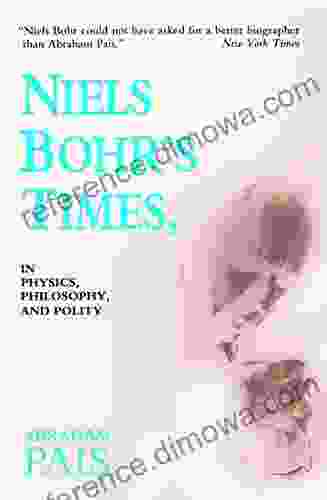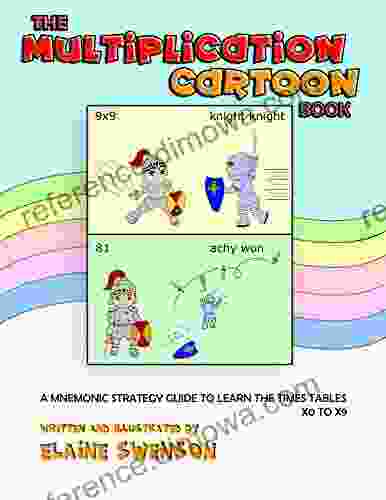In Physics, Philosophy, and Polity: Science, Nature, and the Human Condition

This book explores the deep connections between physics, philosophy, and politics. It argues that these three disciplines are inextricably linked, and that a full understanding of any one of them requires an understanding of the other two.
The book begins by examining the nature of reality. It argues that reality is not something that is fixed and unchanging, but rather something that is constantly evolving and changing. This view of reality is based on the latest findings in physics, which have shown that the universe is not a static place, but rather a dynamic and ever-changing system.
4.4 out of 5
| Language | : | English |
| File size | : | 84494 KB |
| Screen Reader | : | Supported |
| Print length | : | 254 pages |
| Lending | : | Enabled |
| Hardcover | : | 155 pages |
| Item Weight | : | 15.3 ounces |
| Dimensions | : | 6.14 x 0.44 x 9.21 inches |
The book then goes on to explore the relationship between physics and philosophy. It argues that physics is not just a collection of facts and theories, but also a way of thinking about the world. The way that we think about the world shapes our understanding of reality, and it also shapes our actions.
Finally, the book explores the relationship between physics and politics. It argues that physics can provide us with valuable insights into the nature of human society. For example, the laws of physics can help us to understand how power works, and how societies can be organized in a more just and equitable way.
This book is a timely and important contribution to the ongoing debate about the future of science and society. It offers a new way of thinking about the relationship between science, philosophy, and politics, and it provides valuable insights into the nature of reality and the human condition.
Table of Contents
- Chapter 1: The Nature of Reality
- Chapter 2: Physics and Philosophy
- Chapter 3: Physics and Politics
Chapter 1: The Nature of Reality
This chapter explores the nature of reality. It argues that reality is not something that is fixed and unchanging, but rather something that is constantly evolving and changing. This view of reality is based on the latest findings in physics, which have shown that the universe is not a static place, but rather a dynamic and ever-changing system.
The chapter begins by examining the concept of time. It argues that time is not something that is absolute and unchanging, but rather something that is relative and dependent on the observer. This view of time is based on the theory of relativity, which has shown that time slows down for objects that are moving at high speeds.
The chapter then goes on to examine the concept of space. It argues that space is not something that is absolute and unchanging, but rather something that is relative and dependent on the observer. This view of space is based on the theory of general relativity, which has shown that space can be curved by the presence of mass and energy.
Finally, the chapter explores the concept of matter. It argues that matter is not something that is solid and unchanging, but rather something that is made up of tiny particles that are constantly moving and changing. This view of matter is based on the quantum theory, which has shown that matter is not made up of continuous substances, but rather discrete particles.
Chapter 2: Physics and Philosophy
This chapter explores the relationship between physics and philosophy. It argues that physics is not just a collection of facts and theories, but also a way of thinking about the world. The way that we think about the world shapes our understanding of reality, and it also shapes our actions.
The chapter begins by examining the history of science. It argues that science is not a new invention, but rather a continuation of the philosophical tradition. The ancient Greeks were the first to develop a systematic approach to understanding the world, and their ideas have had a profound impact on the development of science.
The chapter then goes on to examine the scientific method. It argues that the scientific method is not a foolproof way to discover truth, but rather a way to test hypotheses and theories. The scientific method has been used to make great advances in our understanding of the world, but it is important to remember that it is not a perfect tool.
Finally, the chapter explores the relationship between science and religion. It argues that science and religion are not necessarily in conflict, but rather two different ways of understanding the world. Science can help us to understand the natural world, while religion can help us to understand our place in the universe.
Chapter 3: Physics and Politics
This chapter explores the relationship between physics and politics. It argues that physics can provide us with valuable insights into the nature of human society. For example, the laws of physics can help us to understand how power works, and how societies can be organized in a more just and equitable way.
The chapter begins by examining the concept of power. It argues that power is not something that is fixed and unchanging, but rather something that is constantly changing and evolving. Power is a relationship between people, and it is constantly being negotiated and renegotiated.
The chapter then goes on to examine the concept of social Free Download. It argues that social Free Download is not something that is imposed on society from above, but rather something that emerges from the interactions between individual people. Social Free Download is a complex and dynamic system, and it is constantly being shaped and reshaped by the actions of individuals.
Finally, the chapter explores the concept of justice. It argues that justice is not something that is abstract and unchanging, but rather something that is constantly being defined and redefined. Justice is a social construct, and it is constantly being shaped by the actions of individuals.
This book is a timely and important contribution to the ongoing debate about the future of science and society. It offers a new way of thinking about the relationship between science, philosophy, and politics, and it provides valuable insights into the nature of reality and the human condition.
Free Download the book on Our Book Library
4.4 out of 5
| Language | : | English |
| File size | : | 84494 KB |
| Screen Reader | : | Supported |
| Print length | : | 254 pages |
| Lending | : | Enabled |
| Hardcover | : | 155 pages |
| Item Weight | : | 15.3 ounces |
| Dimensions | : | 6.14 x 0.44 x 9.21 inches |
Do you want to contribute by writing guest posts on this blog?
Please contact us and send us a resume of previous articles that you have written.
 Book
Book Novel
Novel Page
Page Chapter
Chapter Text
Text Story
Story Genre
Genre Reader
Reader Library
Library Paperback
Paperback E-book
E-book Magazine
Magazine Newspaper
Newspaper Paragraph
Paragraph Sentence
Sentence Bookmark
Bookmark Shelf
Shelf Glossary
Glossary Bibliography
Bibliography Foreword
Foreword Preface
Preface Synopsis
Synopsis Annotation
Annotation Footnote
Footnote Manuscript
Manuscript Scroll
Scroll Codex
Codex Tome
Tome Bestseller
Bestseller Classics
Classics Library card
Library card Narrative
Narrative Biography
Biography Autobiography
Autobiography Memoir
Memoir Reference
Reference Encyclopedia
Encyclopedia Karin Tanabe
Karin Tanabe Abhishek Dubey
Abhishek Dubey Abdi Nazemian
Abdi Nazemian Amy Novak
Amy Novak George Silver
George Silver John Ruskin
John Ruskin Michelle Edwards
Michelle Edwards Jeff Wells
Jeff Wells Mike Seely
Mike Seely Cyan Brown
Cyan Brown Lily Jouve
Lily Jouve Adam Pitluk
Adam Pitluk A W Jantha
A W Jantha Daniel F Styer
Daniel F Styer Graham Field
Graham Field Johnnie Walker
Johnnie Walker Derek Fridolfs
Derek Fridolfs Quinton Wall
Quinton Wall Pierra Collins
Pierra Collins Stephen Lynch
Stephen Lynch
Light bulbAdvertise smarter! Our strategic ad space ensures maximum exposure. Reserve your spot today!

 Alex ReedPenny Dreadful: A Haunting and Enchanting Tale of Female Empowerment, Family,...
Alex ReedPenny Dreadful: A Haunting and Enchanting Tale of Female Empowerment, Family,...
 Ryūnosuke AkutagawaAce Your PMP Certification with the New PMBOK® 6th Edition Study Guide
Ryūnosuke AkutagawaAce Your PMP Certification with the New PMBOK® 6th Edition Study Guide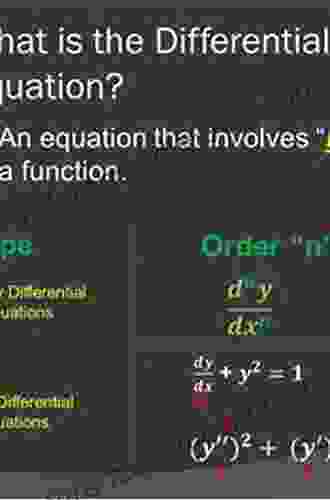
 Preston SimmonsEmpower Your Decision-Making: Unraveling the Complexities with Stochastic...
Preston SimmonsEmpower Your Decision-Making: Unraveling the Complexities with Stochastic... Pete BlairFollow ·15k
Pete BlairFollow ·15k Ross NelsonFollow ·19k
Ross NelsonFollow ·19k Wesley ReedFollow ·6.6k
Wesley ReedFollow ·6.6k Guy PowellFollow ·19.3k
Guy PowellFollow ·19.3k Jackson BlairFollow ·6.5k
Jackson BlairFollow ·6.5k Stephen FosterFollow ·16k
Stephen FosterFollow ·16k Nikolai GogolFollow ·12.1k
Nikolai GogolFollow ·12.1k Drew BellFollow ·4k
Drew BellFollow ·4k
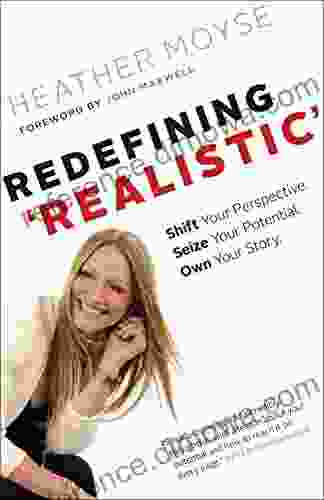
 Julio Cortázar
Julio CortázarShift Your Perspective, Seize Your Potential, Own Your...
A Transformative Guide to...
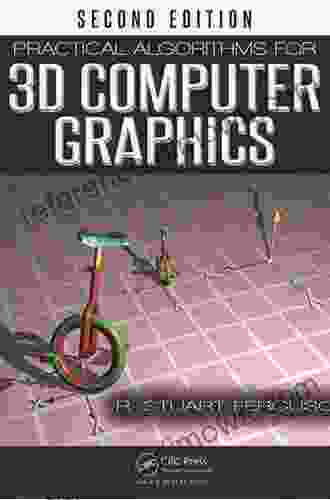
 Isaias Blair
Isaias BlairPractical Algorithms For 3d Computer Graphics: Unlocking...
In the realm of digital artistry, 3D computer...

 Joseph Heller
Joseph HellerClear Vision Through Cloudy Eyes: A Guide to Overcoming...
Have you ever felt...

 Leo Tolstoy
Leo TolstoyThe True Story of My Fairygodparent Who Almost Killed Me...
Book Description In this captivating...

 Earl Williams
Earl WilliamsCanada 10 Must Visit Locations: A Captivating Journey...
Prologue: A...
4.4 out of 5
| Language | : | English |
| File size | : | 84494 KB |
| Screen Reader | : | Supported |
| Print length | : | 254 pages |
| Lending | : | Enabled |
| Hardcover | : | 155 pages |
| Item Weight | : | 15.3 ounces |
| Dimensions | : | 6.14 x 0.44 x 9.21 inches |


